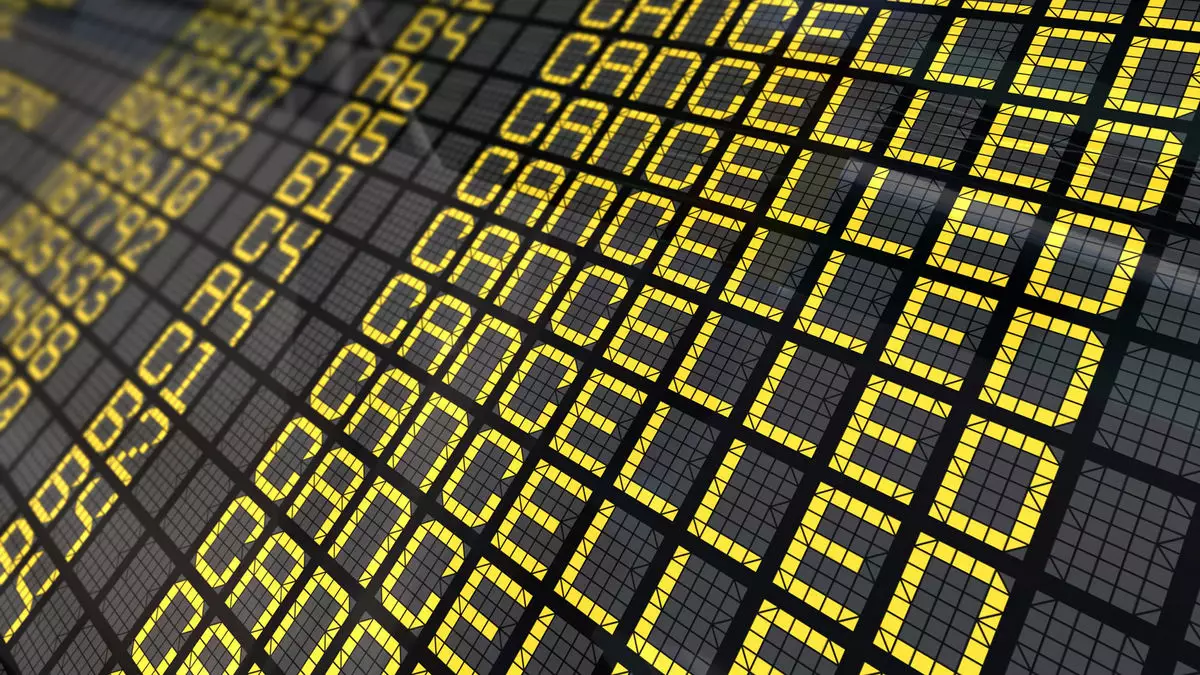The transportation landscape in the United States faces a pivotal transformation as an incoming administration gears up to evaluate new compensation regulations for airlines. The Department of Transportation (DOT) has initiated an ambitious proposal that seeks to hold airlines accountable for significant disruptions, such as flight cancellations or extensive delays. This initiative has gained momentum with a regulatory notice published on December 5, which calls for public feedback on the proposed compensation structure.
Under the new rules, the DOT is exploring a tiered compensation model. Flyers may receive payouts ranging from $200 to $300 for domestic delays lasting three to six hours. For more severe cases, such as cancellations or delays exceeding six hours, compensation could reach up to $775. Importantly, the proposal seeks to impose liability solely on the airlines when disruptions stem from their operational failures rather than forces beyond their control, like inclement weather.
The discussion surrounding these regulations comes at a time when political leadership is poised to shift, with President Joe Biden’s administration transitioning power to former President Donald Trump’s team. Although the DOT’s call for public comment is open for 60 days, many believe that the incoming administration may not prioritize these regulatory changes. Notably, past experiences suggest that the previous Trump administration adopted a more lenient stance on airline consumer protections when compared to the assertive efforts of current Transportation Secretary Pete Buttigieg.
Legal experts, such as Mark Dombroff, have expressed skepticism toward the momentum of the proposed compensation rules. Dombroff highlights that the Advanced Notice of Proposed Rulemaking (ANPR) issued by the DOT is more exploratory in nature and lacks the formal weight of other regulatory announcements. He points out that the new administration is under no obligation to further pursue these considerations, suggesting that the initiative may dwindle into obscurity if it does not align with the incoming leadership’s agenda.
The proposed compensation framework has sparked fierce debate among stakeholders. Airlines for America (A4A) and the International Air Transport Association (IATA) have voiced strong opposition to the recommendations, framing the proposal as a substantial regulatory burden that may inadvertently lead to higher ticket prices. They argue that the compensation measures could diminish affordability for passengers, particularly those sensitive to price fluctuations.
On the flip side, consumer advocacy groups and organizations focused on passenger rights laud the proposal as a significant step toward enhancing consumer protections. They argue that established compensation guidelines, as seen in the European Union, cultivate a stronger accountability framework for airlines and ultimately benefit passengers. Companies like Skycop and AirHelp, which assist travelers in claiming compensation under EU regulations, suggest that potential cost implications from these compensation policies would be minimal. They argue that the benefits of improved airline services and increased punctuality would outweigh the supposed financial burdens.
Research indicates that despite concerns from the airline industry about increased operational costs, the long-term impact of airline compensation rules could prove favorable for consumers. A 2023 study published in the journal Transport Policy diverges from industry apprehensions by demonstrating that stricter compensation laws in Europe correlate with improved on-time performance among airlines. The authors noted that this positive trend was particularly evident on less competitive routes.
Critics of the industry stance argue that establishing fair compensation requirements would not only provide fairness for aggrieved passengers but also drive airlines to enhance services and operational efficiency. As Eric Napoli of AirHelp articulates, the framework in Europe has produced tangible benefits for passengers—enhancing their rights in instances of delay or cancellation.
With the comment period for the DOT open, it is crucial that both industry stakeholders and consumers express their viewpoints on the proposed compensation rules. The subjective nature of airline operations and their impacts on travelers necessitates a balanced discussion that weighs consumer rights against operational viability.
In summation, the evolving landscape of airline compensation regulations could reshape the future of air travel in the United States. The decision regarding these measures will ultimately reflect the values prioritized by the incoming administration, spotlighting the ongoing tension between regulatory oversight and the competitive dynamics of the airline industry. The road ahead requires transparency, engagement, and careful consideration of both consumer needs and business realities. The outcomes of this discussion will resonate throughout the airline industry and, more importantly, for travelers across the nation.


Leave a Reply